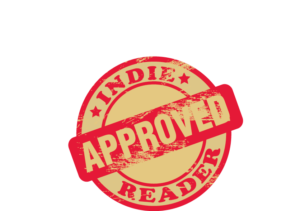
Management Practices of Successful CEOs: Memoir of a Psychological Consultant to Management received a 4+ star review, making it an IndieReader Approved title.
Following find an interview with author James P. Armatas.
What is the name of the book and when was it published?
Management Practices of Successful CEOs: Memoir of a Psychological Consultant to Management.
What’s the book’s first line?
At the writing of this introduction, I am eighty-seven years old and retired from a fifty-year career as a psychological consultant to management.
What’s the book about? Give us the “pitch”.
This memoir started as a tribute to the client companies that I served, but it has evolved also into a tutorial on the management practices of successful CEO’s. My unstated hypotheses is that the management practices of my clients are relevant for today’s CEOs.
What inspired you to write the book? A particular person? An event?
Over the past two years, three of the elder CEOs with whom I consulted died, leading me to reflect about them and what I learned from them. Each was a true entrepreneur who started or acquired a start-up business. Each achieved success, and each had unique management talents, skills and experiences worthy of a major case study. My enthusiasm for these three leaders notwithstanding, I realized that during my career, I have learned much about management from all CEOs with whom I have been associated.
My clients included large and small companies that cut across the history of American industry from multi-layered monopolies to a single person enterprise. With few exceptions, all companies were survivors. They are still in business today, or they are merged with other companies at a substantial profit.
What’s the main reason someone should really read this book?
Over these past fifty years, American business and industry have gone through significant transformational change. From a strong base of monopolistic organizations and manufacturers providing career employment and benefits to prospective managers, the present culture opens career opportunities for resourceful CEOs and entrepreneurs.
I view this memoir not unlike a longitudinal research project, identifying the management practices of successful CEOs and their companies as models for a new generation of entrepreneurs and future CEOs to consider.
When did you first decide to become an author?
As a psychologist at a VA extended care facility, and as a psychological consultant to management, I authored two books early in my career. One book was a textbook; it had four editions and was in print for over 20 years. Throughout my career, I was active in formulating applied research projects, resulting in both formal and informal documents presented to the organizations to which I was professionally engaged. This is the third book that I have written.
What do you do for work when you’re not writing?
I am retired. I play golf, exercise and read. I try to read at least one non-fiction hard cover book per month. With my kindle, and daily internet access, I have a continuous backlog of books to read. I subscribe to Bloomberg Businessweek, the New Yorker magazine and several investment periodicals. I subscribe to four daily newspapers including the Wall Street Journal and the weekend New York Times. I am still an active member of the American Psychological Association (APA) and the Society for Organizational and Industrial Psychology (SIOP).
How much time do you generally spend on your writing?
Unless I am working on something like the book I finished, I do little writing. In 1970, I wrote, Rehabilitation of the Chronically Institutionalized, based on a four-year research and demonstration grant I received from the Department of Health, Education and Welfare. The project was established at the VA Center in Leavenworth, Kansas, where I was employed as a clinical/counseling psychologist. I have considered writing a memoir about my involvement in the history of the mental treatment movement in America.
What’s a great piece of advice that you can share with fellow indie authors?
Do your research. Be an expert.
